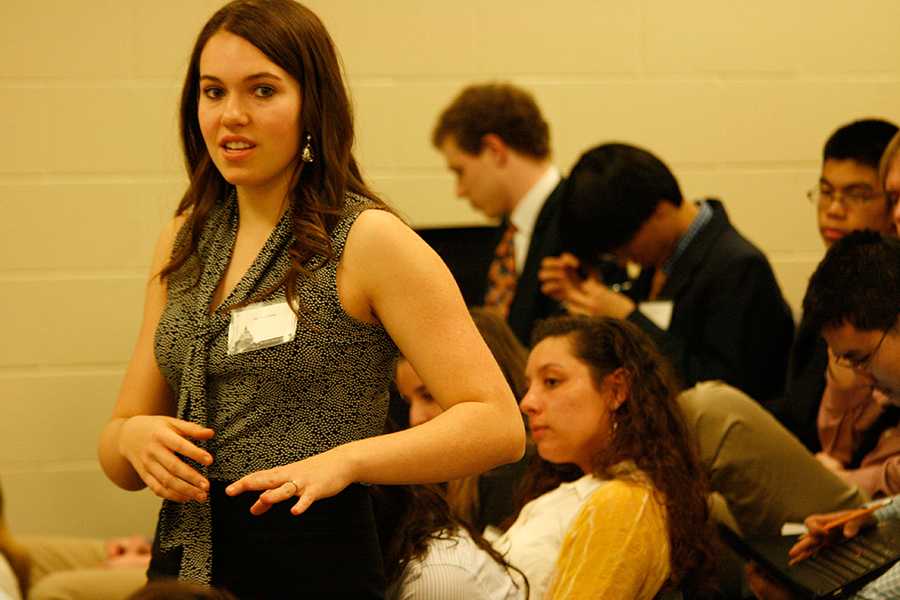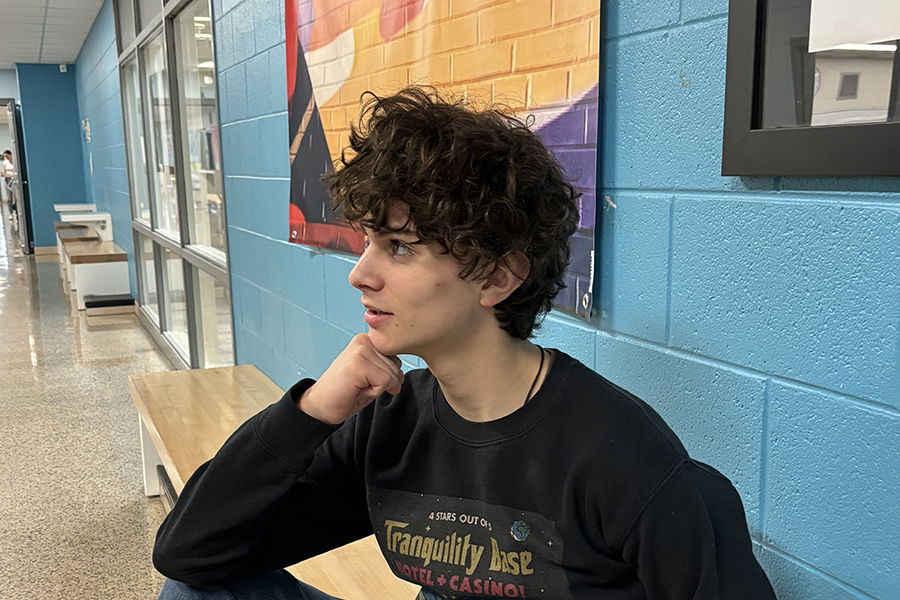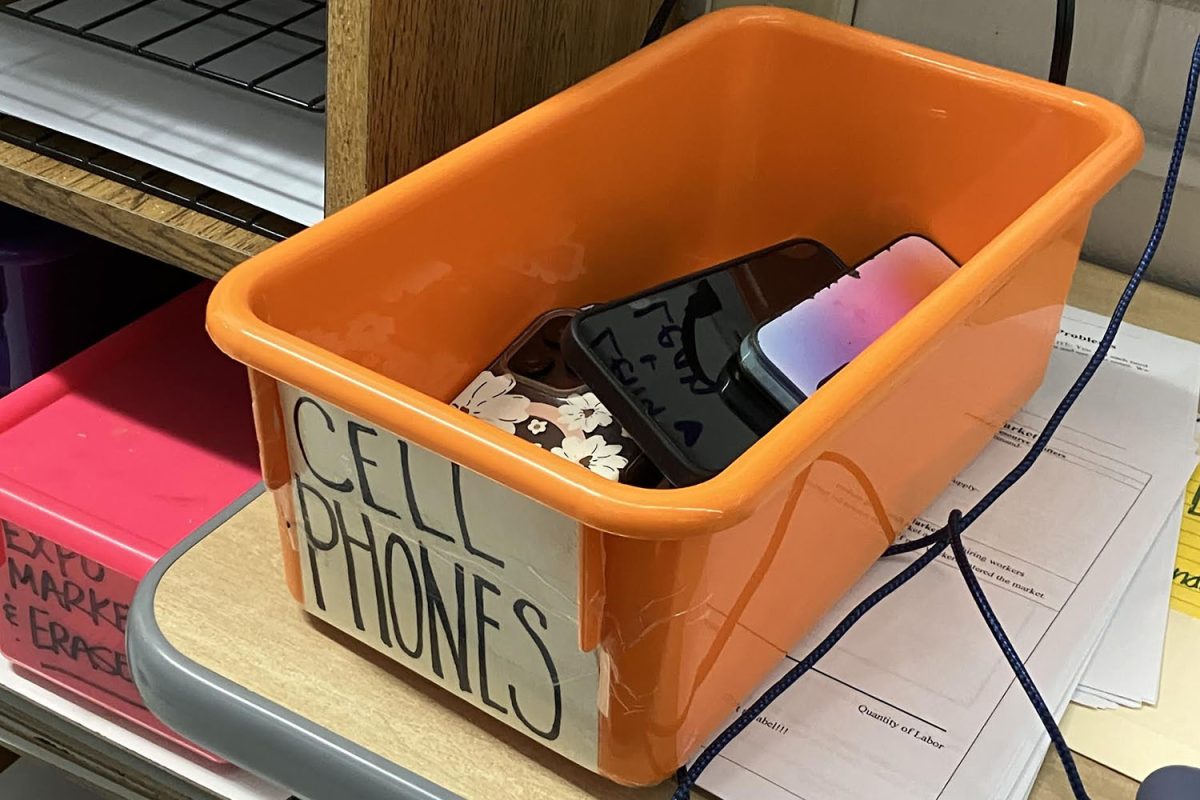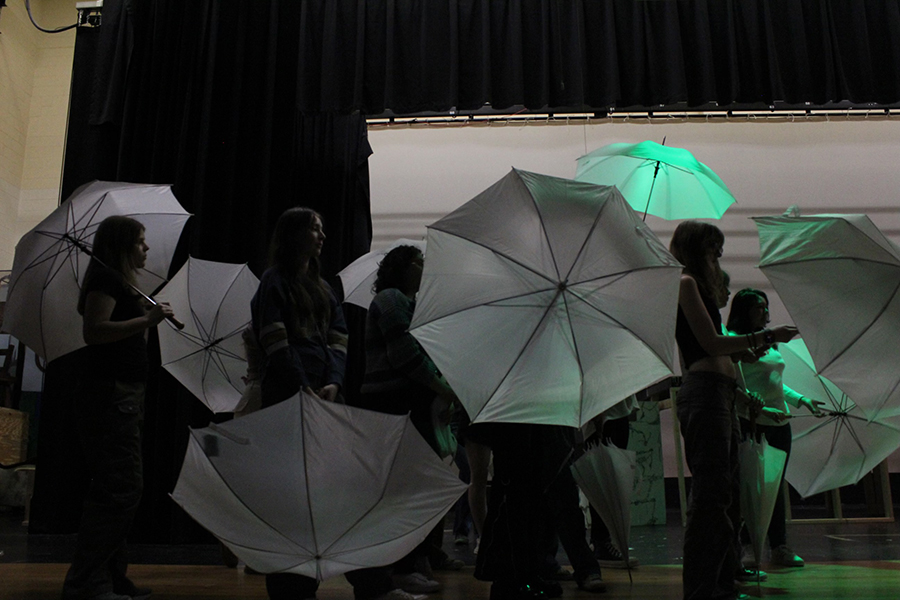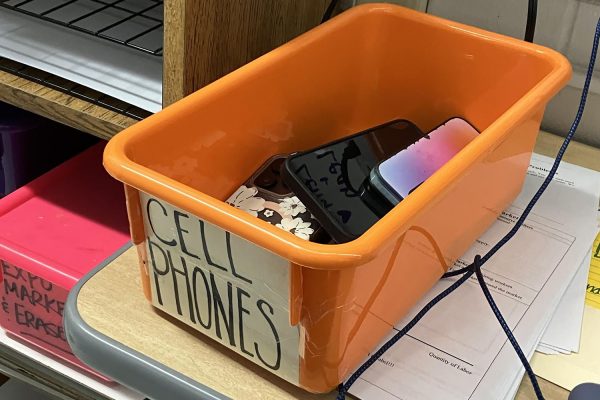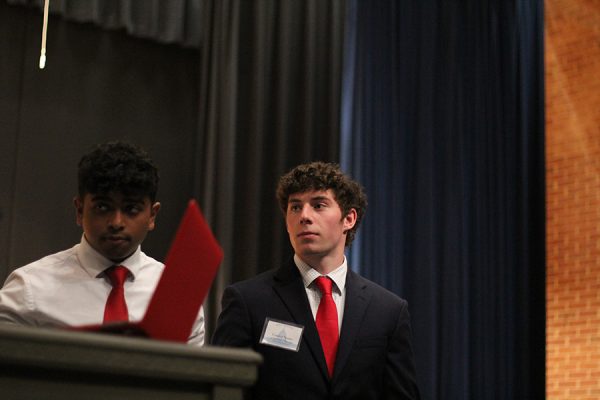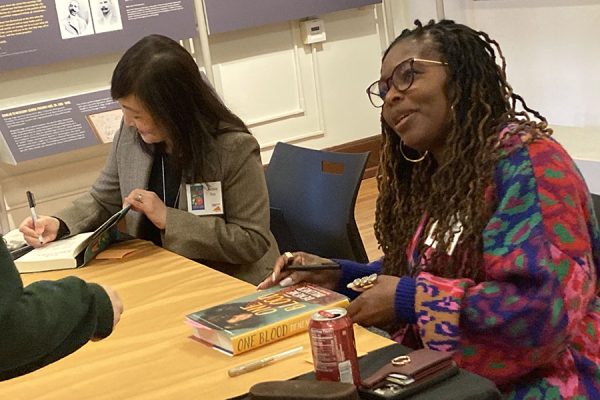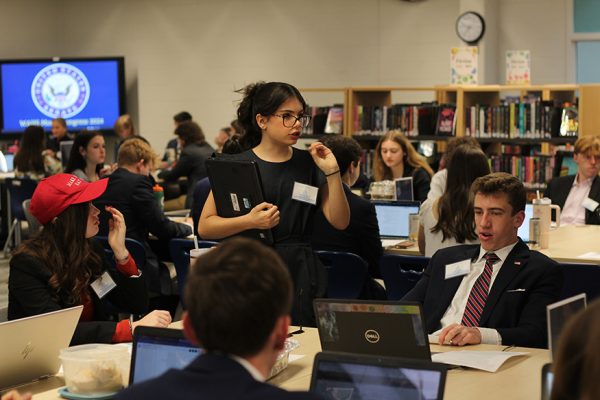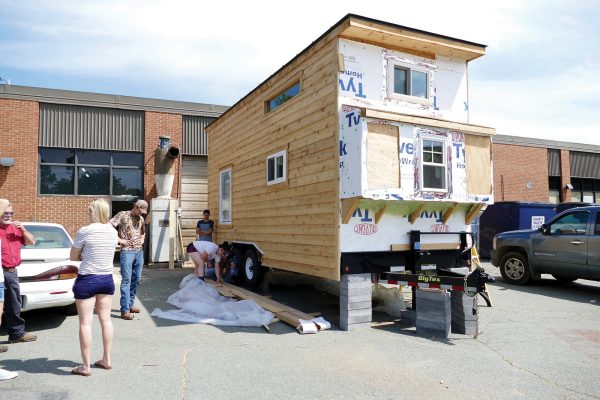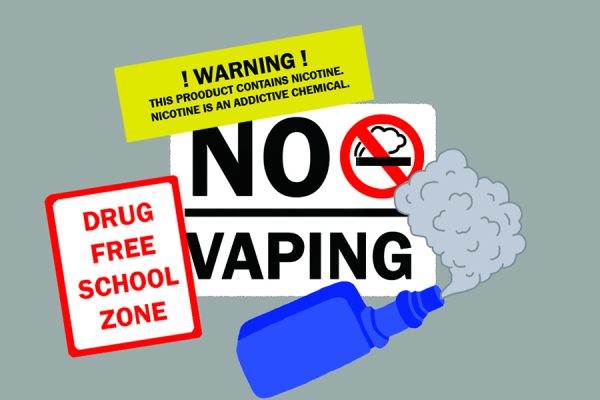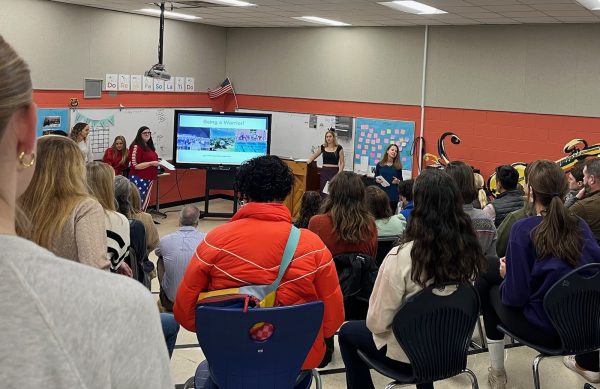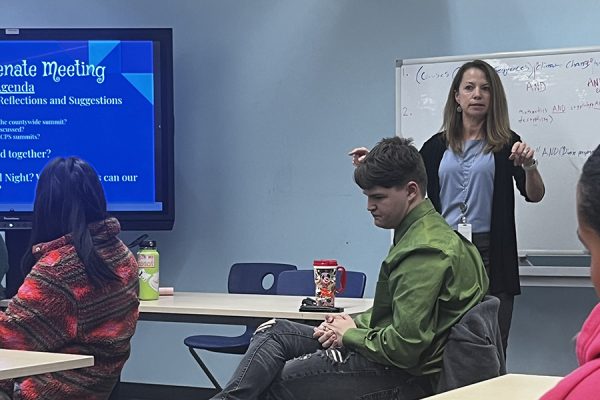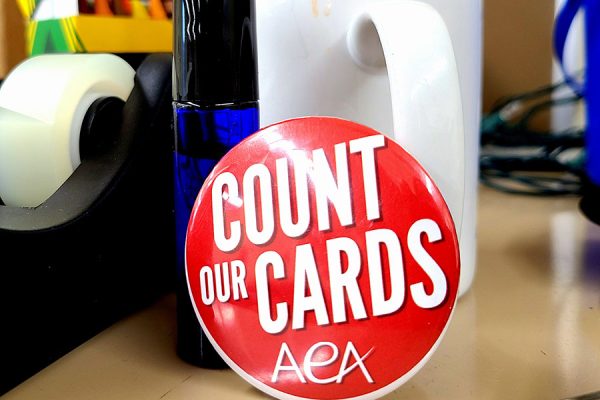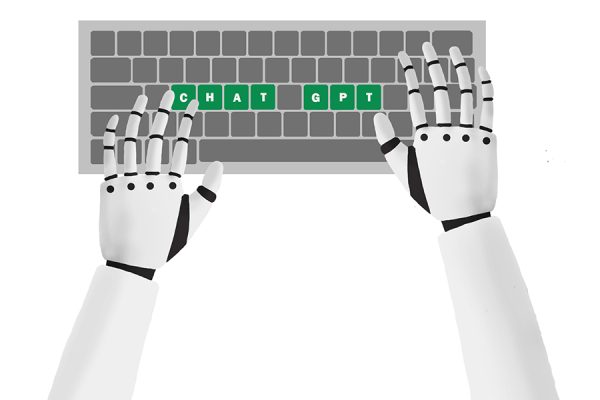Model Congress Death Match 2014
Seniors battle it out on the floors of the House and Senate
Credit: Muhannah Hossain
Senator Kristen Richey discusses a bill on the Senate floor.
April 30, 2014
With a great pomp and circumstance, Republican President Carroll Bickers officially signed into law five separate bills at the end of Model Congress. The day had been a steady stream of debates, votes and compromises as bills lived and died in committees and on the floor. The Republicans, the minority in both the House and the Senate, fought hard, and actually managed to pass HR 709, an act that instituted partial privatization of Social Security, and a Data Transparency bill.
The day began with committee meetings at 9 a.m., where representatives and senators debated bills. If a bill made it through its committee, it then would be finalized in the party caucus meetings, and then proposed at the respective Senate or House floor meeting. While a majority were defeated by this phase, those that remained went to the committee of the opposite chamber. Any bills that were still left by the second floor meeting were sent to President Bickers, who would either sign or veto them.
The heaviest arguments of the day took place in the morning sessions, where most bills were eliminated or changed. By the afternoon, most of the bills had either been killed in their committees or on the floor.
The Democrats were rarely forced to use their majority to pass or kill bills in the senate. However, a Democratic majority did pass HR 302 Fracking Regulation, a bill that would give extensive fracking regulatory powers to the federal government, during the crossover session despite vocal opposition from Republican senators such as Senators Carson Franklin and Ilo Zak.
“Federal government has no right to dictate mineral rights in different states with a blanket bill,” Zak said.
A bill that would set mandatory gun education classes for potential gun owners was killed in the final House session after a heated debate over the length and funding for the classes. Democrat Noah Shin said “It doesn’t matter how long the classes would be, they would save lives”, a sentiment shared by supporters of the bill.
After the final session, seven bills had been passed by both bodies, including legislation for the privatization of Social Security, the regulation of fracking, the legalization of marijuana, pediatric cancer research, and honey bee protection.
President Bickers only chose to sign five bills. Citing the extensive powers that the fracking legislation gave to the federal government, the president sided with his fellow Republicans and vetoed the bill, noting it needed further work for him to accept it. Taking the traditional hard line on illicit substances, he also vetoed the legalization of marijuana.
The day garnered a mixture of opinions, with some celebrating the success of five bills, while others calling the day a failure due to various reasons.
Several bills received bipartisan support, such as the bill for privatizing social security. Chase Stokes, a Republican senator, responded positively to the events and said that “I think it was a successful day. We got some bills passed, overall it was a really hands on way to learn.”
However, some were dissatisfied with the events of the day, most notably some Democrats who accused the party of betraying its base. The “Younger Guns”, a group of fierce Democrats led by Josh Patashnik went as far as to accuse the Democratic leadership of corruption.
Overall, students agreed the day was worthwhile. Ashley Fox said, “It gave us a strong insight to what being in government would be like.”



